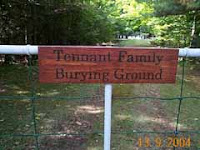
To most, Pierce Butler was a soldier, wealthy plantation owner, statesman, and one of 39 men (George Washington being the first) to sign the U.S. Constitution.

A shared family history.


Ben Hawkes and Letitia Cooper were Pat's father's parents, born- respectively- in Gret Offley and Cookham, relatively small towns north of London.
Many of us had occasion to wear the family Christening robe which began with Letitia's family: she herself was Christened in it in 1868.
Ben was a tailor, a one-time militia member, avid cyclist, and one-time cellist in a black-face band. He started and lost a tailoring business in Letchworth. Bankruptcy in those days carried an unbearable stigma: soon after he left England and brought his family to Canada. It’s believed his son, Bob was about 12 when they came, which would suggest c. 1911. It's not certain how he raised money for the journey.
In Toronto, Ben worked awhile for Tip Top Tailors. The undated photo (right) is a Tip Top worker, reproduced from the archives of Ontario.
Pat tells us that one day while Ben was driving he suffered a heart attack, pulled his car to the side of the street, and died.
At some point, presumably after Ben’s death, Letitia came to Vancouver to stay with Bob, Phyllis and family. It was an unhappy time; before long she returned to Toronto, with her grandson Doug in tow. She died in 1940, at the age of 72.
Ben & Letitia are buried at Mount Pleasant Cemetery, Toronto.

For our purpose, Thomas Tennant (1755-1821) was Hal’s grandfather’s grandfather’s father. We have no photograph of him: photography wouldn’t be invented until more than a decade after his death.
It was Thomas who chose, at the age of 66, to leave everything he knew, to gather his wife, their ten children and two servants, to take up pioneering in Canada’s Ottawa Valley.
Until then, Thomas had been an administrator at Ballintemple, the estate of the Butler family near Aghade (a-HAYD) parish, a few miles outside the town of Tullow in County Carlow, Ireland.
Thomas, family & servants were among the 402 settlers who sailed on the vessel Commerce from Greenock, Scotland on Wednesday, June 21st, 1820, and arrived in Quebec on Saturday, August 5th.
There were no railways. The Lanark settlers had to haul their possessions overland by wagon, and by barge for weeks before arriving at the Prescott Military settlement. From there, Thomas and sons took a stage to Perth. From Perth, Thomas and sons would hike north some 20 miles to find the land they wished to claim as part of the settler’s program. Then, given a starter kit of supplies, they had to quickly build a log shelter on their new property before winter set in.
 Robert D. Tennant’s original history suggests that Thomas was heartbroken over his decision to move his family to “this wilderness”. On February 7th, 1821, barely six months after first setting foot in Canada, Thomas died following a short illness.
Robert D. Tennant’s original history suggests that Thomas was heartbroken over his decision to move his family to “this wilderness”. On February 7th, 1821, barely six months after first setting foot in Canada, Thomas died following a short illness.
He’s buried in a spot he had chosen himself, in what would become the Tennant Family Burying Ground, at a small, sandy clearing in the woods within view of his homestead.
This blog is designed for the family of Pat & Hal Tennant, formerly of Richmond Hill. Heaven knows it's not scholarly history, but rather a assembly of bits and pieces of family back-story. It might include an account of sailing conditions when the Tennants first came to Canada, or something wacky Hal once said, or Mom's recollections of her early summers at Pt. Roberts.
Please don't be shy about contributing thoughts, stories, and additions from your corner of the family. That's what will make the bigger picture clearer, and our shared family experience all the richer.